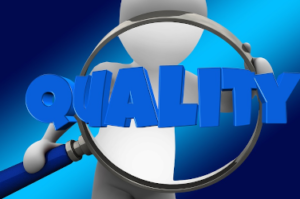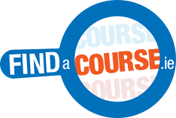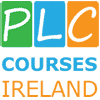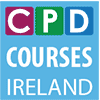
ISO, the International Organisation for Standardisation, is an independent, non-governmental organisation, with 162 member countries. It is the world’s largest developer of voluntary international standards and facilitates world trade by providing common standards between nations. Over twenty thousand standards have been set covering everything from manufactured products and technology to food safety, agriculture and healthcare.
Use of the standards aids in the creation of products and services that are safe, reliable and of good quality. The standards help businesses increase productivity while minimising errors and waste. By enabling products from different markets to be directly compared, they facilitate companies in entering new markets and assist in the development of global trade on a fair basis. The standards also serve to safeguard consumers and the end-users of products and services, ensuring that certified products conform to the minimum standards set internationally.
The ISO develop International Standards, such as ISO 9001 and ISO 14001, but are not involved in their certification, and do not issue certificates. This is performed by external certification bodies.
What is ISO Certification?
The provision by an independent body of written assurance (a certificate) that the product, service or system in question meets specific requirements.
Why Choose ISO Certification?
Certification can be a useful tool to add credibility, by demonstrating that your product or service meets the expectations of your customers. For some industries, certification is a legal or contractual requirement.
Popular ISO Certificates
ISO 9000 – Quality management
The ISO 9000 family addresses various aspects of quality management and contains some of ISO’s best known standards. The standards provide guidance and tools for companies and organisations who want to ensure that their products and services consistently meet customer’s requirements, and that quality is consistently improved.
ISO 9001:2015
ISO 9001:2015 sets out the criteria for a quality management system and is the only standard in the family that can be certified to (although this is not a requirement). It can be used by any organisation, large or small, regardless of its field of activity. In fact, there are over one million companies and organisations in over 170 countries certified to ISO 9001.
This standard is based on a number of quality management principles including a strong customer focus, the motivation and implication of top management, the process approach and continual improvement.
ISO 14000
The ISO 14000 family of standards provides practical tools for companies and organisations of all kinds looking to manage their environmental responsibilities.
ISO 14001:2015 and its supporting standards such as ISO 14006:2011 focus on environmental systems to achieve this. The other standards in the family focus on specific approaches such as audits, communications, labelling and life cycle analysis, as well as environmental challenges such as climate change.
The ISO 14000 family of standards are developed by ISO Technical Committee ISO/TC 207 and its various subcommittees.
ISO/IEC 27000 family – Information security management systems
The ISO/IEC 27000 family of standards helps organizations keep information assets secure.
Using this family of standards will help an organisation manage the security of assets such as financial information, intellectual property, employee details or information entrusted to you by third parties.
ISO/IEC 27001 is the best-known standard in the family providing requirements for an information security management system (ISMS).
There are more than a dozen standards in the 27000 family
Other ISO standards can be viewed at www.iso.org


 Distance Learning and Online Courses are offered in a number of different formats, these include correspondence courses (by post), online via computer or a combination of online and classroom instruction (blended learning).. View
Distance Learning and Online Courses are offered in a number of different formats, these include correspondence courses (by post), online via computer or a combination of online and classroom instruction (blended learning).. View  Further Education and PLCs (Post Leaving Cert Courses) have become a popular alternative to the CAO system here in Ireland. PLC Courses are validated by QQI (Quality & Qualifications Ireland) at levels 5 & 6 of the NFQ.. View
Further Education and PLCs (Post Leaving Cert Courses) have become a popular alternative to the CAO system here in Ireland. PLC Courses are validated by QQI (Quality & Qualifications Ireland) at levels 5 & 6 of the NFQ.. View  Continuous Professional Development (CPD) helps to keep job skills and professional knowledge up to date and ensures the standard of registrations & qualifications are maintained.. View
Continuous Professional Development (CPD) helps to keep job skills and professional knowledge up to date and ensures the standard of registrations & qualifications are maintained.. View  Evening courses and part time learning options are a great way to enhance a CV, to socialise and make friends, as well as learn something completely new. There are an abundance of night courses and evening classes available.. View
Evening courses and part time learning options are a great way to enhance a CV, to socialise and make friends, as well as learn something completely new. There are an abundance of night courses and evening classes available.. View